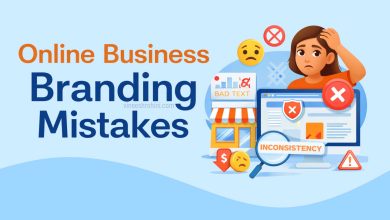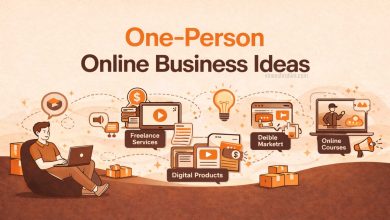Earn From Home : Side Businesses to Earn up to Rs 15,000 Per Month – Comprehensive Guide

Earn From Home : Many individuals find themselves as the sole earners in their households, navigating the challenges of increasing responsibilities during regular work hours. However, for those with available time in the evenings, exploring side businesses becomes a viable option to supplement their income. Particularly appealing are freelance opportunities that require minimal investment.
What is online business ?
Online business, also known as e-commerce, refers to the buying and selling of goods and services over the internet. It represents a transformative paradigm shift in the way commerce is conducted, eliminating geographical constraints and enabling transactions to occur in the virtual realm. Online businesses leverage digital platforms to connect buyers and sellers, facilitating transactions through electronic means. These businesses can take various forms, including online retailers, service providers, digital marketplaces, and more.
Table of Contents
They operate 24/7, providing consumers with the flexibility to browse products, compare prices, and make purchases at any time from the comfort of their homes. The foundation of online business rests on secure payment gateways, digital marketing strategies, and efficient logistics and delivery systems. The advent of e-commerce has not only reshaped traditional retail but has also given rise to innovative business models, such as dropshipping, subscription services, and digital downloads.
Also Read … Power of Online Business – A Comprehensive Exploration 2023 – Earn From Home
The scalability of online business allows for global reach, enabling businesses to target a diverse and expansive customer base. Moreover, data analytics and customer relationship management tools empower online businesses to personalize user experiences, optimize operations, and make informed strategic decisions. While online business offers numerous advantages, it also poses challenges related to cybersecurity, competition, and the need for robust digital infrastructure. Overall, the rise of online business has transformed the economic landscape, fostering a dynamic and interconnected global marketplace.
Features of online Business

Online businesses, or e-commerce ventures, exhibit various features that distinguish them from traditional brick-and-mortar establishments. Here are key features of online businesses:
- Digital Presence: The primary characteristic of online businesses is their existence in the digital realm. They operate on the internet, leveraging websites, mobile apps, and other online platforms to showcase products or services.
- Global Reach: Online businesses have the potential to reach a global audience. They are not confined by geographical limitations, allowing them to target customers from different regions and cultures.
- 24/7 Accessibility: Unlike physical stores with fixed operating hours, online businesses operate 24/7. Customers can browse products, place orders, and make transactions at any time, providing convenience and flexibility.
- E-commerce Platforms: Online businesses often utilize e-commerce platforms such as Shopify, WooCommerce, or Magento to create and manage their digital storefronts. These platforms offer features like product listings, secure payment processing, and order management.
- Digital Marketing: Online businesses heavily rely on digital marketing strategies to attract and engage customers. This includes search engine optimization (SEO), social media marketing, email campaigns, and online advertising to increase visibility and drive traffic.
- Secure Online Transactions: Ensuring the security of online transactions is a critical feature. Online businesses implement secure payment gateways and encryption protocols to protect customer information and facilitate safe financial transactions.
- Data Analytics: Online businesses leverage data analytics tools to gather insights into customer behavior, preferences, and trends. This data-driven approach helps in making informed decisions regarding inventory management, marketing strategies, and user experience improvements.
- Customer Reviews and Ratings: Customer feedback plays a crucial role in online businesses. Reviews and ratings on products or services provide social proof, influencing the purchasing decisions of potential customers.
- Logistics and Fulfillment: Efficient logistics and fulfillment systems are essential for online businesses. They manage shipping, tracking, and timely delivery of products, often partnering with courier services or utilizing third-party logistics providers.
- Mobile Responsiveness: Given the widespread use of smartphones and tablets, online businesses ensure their websites and platforms are mobile-responsive, providing a seamless experience for users across various devices.
- Inventory Management: Online businesses implement inventory management systems to track product availability, restock items, and prevent overselling. This ensures that customers have accurate information about product availability.
- Personalization: Many online businesses incorporate personalization features, tailoring the user experience based on individual preferences and past interactions. This may include personalized recommendations, targeted promotions, and customized content.
- Virtual Customer Support: Online businesses often provide customer support through digital channels such as chat, email, or chatbots. This facilitates real-time assistance and problem resolution.
- Scalability: Online businesses can easily scale their operations by expanding product offerings, reaching new markets, or optimizing digital infrastructure to accommodate growing user bases.
These features collectively define the modern landscape of online business, reflecting the dynamic and technologically driven nature of e-commerce ventures.
Also Read… Online Business Ideas in Kerala – Earn From Home
Advantages of Online Business

Online business, also known as e-commerce, offers numerous advantages for entrepreneurs and consumers alike. Here are some key advantages:
- Global Reach: One of the most significant advantages of online business is the ability to reach a global audience. Businesses can expand their market beyond geographical boundaries, reaching customers from different regions and countries.
- 24/7 Availability: Online businesses operate 24 hours a day, seven days a week. This constant availability allows customers to browse products, place orders, and make transactions at any time, increasing convenience and accessibility.
- Lower Overhead Costs: Operating an online business often involves lower overhead costs compared to traditional brick-and-mortar establishments. There is no need for physical storefronts, extensive inventory storage, or a large staff, resulting in cost savings.
- Cost-Effective Marketing: Digital marketing tools and strategies are generally more cost-effective than traditional advertising methods. Online businesses can leverage social media, content marketing, email campaigns, and search engine optimization to reach and engage their target audience without significant expenses.
- Data Analytics and Insights: Online businesses can gather valuable data and insights about customer behavior, preferences, and trends. This data-driven approach allows businesses to make informed decisions, improve their offerings, and optimize their marketing strategies.
- Flexible Business Models: The online environment supports various business models, including e-commerce retail, subscription services, digital downloads, and affiliate marketing. This flexibility enables entrepreneurs to choose the model that best fits their products or services.
- Easier Market Research: Online businesses can easily conduct market research using digital tools to understand customer needs, analyze competitors, and identify trends. This information helps businesses make strategic decisions and stay competitive.
- Quick and Convenient Transactions: Online transactions are quick, efficient, and secure. With multiple payment options and secure payment gateways, customers can make purchases with ease, enhancing the overall shopping experience.
- Accessibility for Small Businesses: The internet provides a level playing field for small and large businesses. Small businesses can establish an online presence, compete effectively, and reach a wide audience without the need for a physical storefront.
- Personalization: Online businesses can personalize the shopping experience for customers by offering personalized recommendations, targeted promotions, and customized content. This personalization enhances customer satisfaction and loyalty.
- Reduced Time to Market: Bringing products or services to market is often faster in the online space. Businesses can launch new products or update existing ones more quickly, responding promptly to market demands and trends.
- Scalability: Online businesses can easily scale their operations to accommodate growth. With the right infrastructure and technology, businesses can expand their product offerings, reach new markets, and handle increased demand.
- Environmental Impact: E-commerce can have a lower environmental impact compared to traditional retail. Reduced reliance on physical stores can lead to less energy consumption, lower carbon emissions, and decreased waste associated with brick-and-mortar operations.
- Customer Reviews and Feedback: Online businesses benefit from customer reviews and feedback, which serve as social proof for potential buyers. Positive reviews can build trust and influence purchasing decisions.
These advantages collectively contribute to the popularity and success of online businesses in the modern business landscape.
Buy Now : Ready Made Digital Store with 100 Products
Disadvantages of Online business
While online business offers numerous advantages, it also comes with certain disadvantages and challenges that businesses need to navigate. Here are some of the disadvantages of online business:
- Security Concerns: Online businesses are susceptible to cybersecurity threats, including data breaches, hacking, and online fraud. Ensuring the security of customer information and transactions is a constant challenge.
- Dependency on Technology: Online businesses heavily depend on technology infrastructure. Technical issues, server outages, or disruptions in internet connectivity can negatively impact operations and customer experience.
- Intense Competition: The barrier to entry in the online space is relatively low, leading to a saturated market with intense competition. Differentiating a business and standing out among numerous competitors can be challenging.
- Lack of Personal Interaction: The absence of face-to-face interaction in online transactions can be a disadvantage. Some customers prefer personal assistance or the ability to physically examine products before making a purchase.
- Shipping and Logistics Challenges: Fulfillment, shipping, and logistics can be complex, especially for businesses dealing with physical products. Issues such as shipping delays, damaged goods during transit, or high shipping costs can impact customer satisfaction.
- Digital Trust Issues: Some consumers may be hesitant to make online purchases due to concerns about the security of their personal information, leading to a lack of digital trust.
- Return and Refund Complications: Handling returns and refunds in an online environment can be more complicated than in traditional retail. Businesses need to establish clear policies and processes to manage these situations effectively.
- High Marketing Costs: While digital marketing can be cost-effective, competition for online visibility can drive up advertising costs. Paid online advertising, influencer marketing, and search engine optimization (SEO) can require substantial investment.
- Customer Service Challenges: Providing effective customer service in the online space can be challenging. Businesses need to address customer queries, concerns, and complaints promptly, often through digital channels.
- Dependency on Third-Party Platforms: Many online businesses rely on third-party platforms or marketplaces, such as Amazon or eBay. While these platforms offer exposure, they also come with fees, competition, and the risk of changes in policies that can impact a business.
- Digital Divide: Not all consumers have equal access to the internet or are comfortable with online transactions. The digital divide can exclude certain demographics, limiting the potential customer base for online businesses.
- Legal and Regulatory Compliance: Online businesses need to navigate various legal and regulatory requirements, including data protection laws, consumer rights, and taxation regulations, which can vary across jurisdictions.
- Product Perception: Customers may have concerns about the accuracy of product descriptions and the quality of items when they cannot physically inspect them before purchase. This can impact trust and satisfaction.
- Overreliance on Reviews: While customer reviews can build trust, they can also be manipulated or biased. Relying solely on reviews for decision-making may not always provide an accurate representation of a product or service.
Despite these challenges, many businesses successfully navigate the disadvantages of online commerce by implementing strategic solutions, focusing on customer satisfaction, and staying adaptable in the dynamic digital landscape.
Buy Now : Ready Made Digital Store with 100 Products
Earn From Home
Let’s delve into various freelance jobs and income-generating avenues suitable for employed individuals.
- Content Writing
Freelance content writing presents a lucrative opportunity with a high demand for well-researched and engaging web content. Those possessing strong grammar, captivating writing styles, and research skills can venture into content writing. Registering on freelance platforms enhances visibility and job opportunities. Building a diverse portfolio can open doors for beginners, who can earn between Rs 8,000-10,000 per month, while experienced content writers may command Rs 20,000-25,000 monthly.
- Data Entry
Despite automation advancements, data entry jobs remain abundant in India. Individuals with a computer, internet connection, and fast typing skills can explore these opportunities listed on various freelancing websites. Data entry typically involves transcribing printed or scanned data into digital formats, offering a steady income ranging from Rs 200 to Rs 1,500 per hour.
- Virtual Assistantship
Virtual assistantship is a domain where exceptional communication and organizational skills are highly valued. Virtual assistants support entrepreneurs, professionals, and small teams with diverse administrative tasks, all from the comfort of their homes. Tasks include scheduling meetings, client communication, order follow-ups, and managing digital platforms. Beginners can charge around Rs.200 per hour, while experienced virtual assistants may command rates up to Rs 7,000 per hour.
- Translation
Proficiency in two or more languages opens the door to translation jobs, a lucrative way to earn supplemental income. The primary responsibility is translating content provided by clients. Proficiency in English and one or two additional languages is advantageous, with a language degree further increasing earning potential. Translation jobs are compensated on a word-by-word basis, with companies paying Rs 1-3 per word, and some languages commanding up to Rs.10 per word. Beginners might earn Rs 500-800 per hour, while experienced translators can command Rs 1,500-2,500 per hour.
New Trends in Online business
- Social Commerce: The integration of e-commerce features into social media platforms was a growing trend. Businesses were leveraging social commerce to directly sell products within social media apps, creating a seamless shopping experience for users.
- Livestream Shopping: Livestream shopping involves real-time, interactive product demonstrations and promotions through video streaming. It allows businesses to engage with customers in real-time, answer questions, and showcase products, creating a dynamic shopping experience.
- Augmented Reality (AR) and Virtual Reality (VR): Some online businesses were incorporating AR and VR technologies to enhance the shopping experience. Virtual try-on features for clothing and accessories, as well as virtual showrooms, were becoming more common.
- Subscription E-commerce: The subscription model was gaining popularity across various industries, offering customers a recurring service or product delivery. Subscription boxes, streaming services, and software-as-a-service (SaaS) models were prevalent in the online business landscape.
- Voice Commerce: With the increasing use of voice-activated devices, businesses were exploring voice commerce capabilities. Voice-activated shopping and virtual assistants were becoming tools for enhancing the online shopping experience.
- Green and Sustainable E-commerce: Consumers were showing a growing interest in environmentally friendly and sustainable products. Online businesses were adapting by promoting eco-friendly practices, providing transparent information about product sourcing, and reducing their environmental impact.
- Contactless Payments and Digital Wallets: The preference for contactless transactions was influencing online payment trends. Digital wallets, mobile payment apps, and other contactless payment options were becoming more prevalent in the online business ecosystem.
- Personalization and AI: Advanced artificial intelligence (AI) and machine learning algorithms were being used to personalize online experiences. Businesses were leveraging customer data to provide personalized recommendations, targeted marketing, and improved user interfaces.
- Direct-to-Consumer (D2C) Brands: More brands were adopting a direct-to-consumer approach, bypassing traditional retail channels and selling products directly to customers. This trend allowed for better control over brand messaging, customer relationships, and data.
- E-commerce in Emerging Markets: Online businesses were increasingly targeting consumers in emerging markets. Improved internet connectivity and smartphone penetration were opening up opportunities for e-commerce growth in regions that were previously underserved.
- Inclusive and Diverse Marketing: Online businesses were focusing on inclusivity and diversity in their marketing strategies. This included representing diverse demographics in advertising, offering a wider range of products, and promoting inclusivity in brand messaging.
- Rise of Niche Markets: Niche and specialized markets were gaining traction in online business. Businesses were catering to specific interests, hobbies, or demographics, allowing for targeted marketing and more personalized offerings.
- Blockchain in E-commerce: Some online businesses were exploring the use of blockchain technology to enhance security, transparency, and trust in transactions. Blockchain could be used for secure payment processing, supply chain transparency, and combating counterfeit products.
- Dynamic Pricing Strategies: AI-driven dynamic pricing models were becoming more sophisticated. Online businesses were utilizing algorithms to adjust pricing based on factors such as demand, supply, competitor pricing, and customer behavior.
To stay abreast of the latest trends in online business, it’s recommended to regularly monitor industry reports, attend relevant conferences, and keep an eye on updates from key players in the e-commerce space.
Keywords : Earn From Home , Earn From Home 2023 , Earn From Home 2024 , Earn From Home ideas , Earn From Home tips , Earn From Home websites , Earn From Home jobs , Earn From Home sites , Earn From Home opportunities , Earn From Home steps , Earn From Home blog , Earn From Home course , Earn From Home essay , Earn From Home articles , Earn From Home without investment , Earn From Home free time , Earn From Home ideas 2023 , Earn From Home ideas 2024 , Earn From Home in india , Earn From Home for ladies



